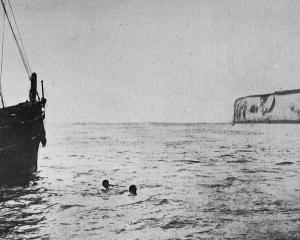The time is again near at hand when the people of this country will have the public duty to discharge of recording their votes on the prohibition issue.
If the amount of instruction relative to the merits or demerits of prohibition which they have received over a course of years counts for anything they should be able to come to an intelligent decision in this matter.
A difficulty, as in all matters of controversy, lies, however, in the fact that it is apparently hopeless to expect to see prejudice eliminated from the discussion of this issue which triennially rivals the political questions of the day in making claim to the attention of the electors.
There are very many people whose convictions so satisfy them that, wittingly or unwittingly, they make no effort to examine dispassionately the arguments upon the question.
No doubt it is possible to vote intelligently for prohibition.
No doubt, also, it is possible to vote intelligently against it.
No doubt, moreover, it is possible to record an unenlightened vote either for or against it.
Whatever the verdict of the public, it is desirable, however, that it should be as far as possible an enlightened verdict. In this relation it is pertinent to observe that the bulk of the platform oratory that is intended for the instruction of the public comes mainly from the one side - the prohibition side.
It is the reformers, the advocates of change, who all the world over lift up their voices most loudly.
Their enthusiasm does them credit, and without it they could not hope to succeed.
There is none the less a large section of the public which does not incline very strongly either to one side or the other in respect of this prohibition issue, and which is desirous of taking, and is capable of taking, an impartial and dispassionate view of the case.
There are people of moderate views who are suspicious, as they are perfectly entitled to be, of the remedies for social evils advocated by extremists.
They may include, and probably do include, a large percentage of total abstainers and advocates of temperance propaganda.
If they are opposed to prohibition it is because they conscientiously doubt both its reasonableness and its efficacy.
Apart, however, from the wide question of principle which is raised by the prohibition movement, there are a few practical considerations which all should weigh seriously before giving that movement their support as voters at the approaching poll.
The great magnitude of the issue involved should be fully appreciated.
National prohibition means absolute prohibition of the importation, sale, and manufacture - even for home consumption - of alcoholic liquor.
No country, it is to be remembered, has yet faced, in circumstances parallel with those in New Zealand, the application in practice of so far-reaching an innovation, so drastic an experiment, as the complete abolition within its borders of the sale and use and even the very presence of alcoholic liquor.
The evils of drunkenness are serious, but with a full sense of responsibility we suggest to the community that the cure for them does not necessarily lie in compulsory total abstinence.
The desire for stimulants is in itself neither unnatural nor wicked.
Nor is it one which, though it may be guided, can assuredly be repressed. - ODT, 5.12.1914.












